Milk
 for language, some sexual content and brief violence.
for language, some sexual content and brief violence.
Reviewed by: Ethan Samuel Rodgers
CONTRIBUTOR
| Moral Rating: | Extremely Offensive |
| Moviemaking Quality: |
|
| Primary Audience: | Adults |
| Genre: | Biography Drama |
| Length: | 2 hr. 8 min. |
| Year of Release: | 2008 |
| USA Release: |
December 5, 2008 November 26, 2008 (limited) |
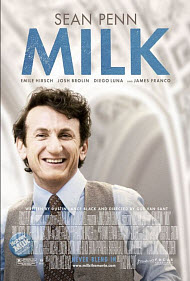
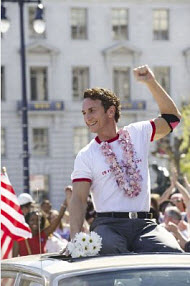
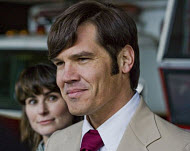
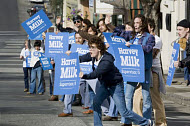
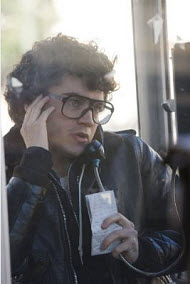
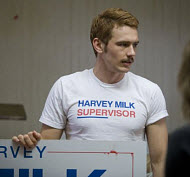
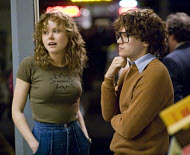
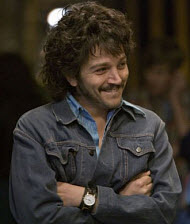
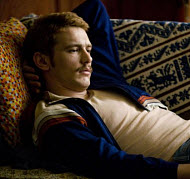
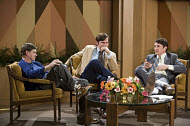
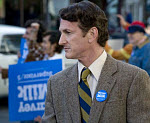
About murder in the Bible
What’s wrong with being gay? Answer
Homosexual behavior versus the Bible: Are people born gay? Does homosexuality harm anyone? Is it anyone's business? Are homosexual and heterosexual relationships equally valid?
What about gays needs to change? Answer
It may not be what you think.
Can a gay or lesbian person go to heaven? Answer
If a homosexual accepts Jesus into his heart, but does not want to change his lifestyle, can he/she still go to Heaven?
What should be the attitude of the church toward homosexuals and homosexuality? Answer
Read stories about those who have struggled with homosexuality
A single man or woman can help change the world. Read about some who did with faith and God's help…
Jesus Christ, Noah, Abraham, Joseph, Moses, and David
| Featuring |
|---|
|
Sean Penn James Franco Emile Hirsch Josh Brolin Diego Luna Victor Garber Dave Franco See all » |
| Director |
|
Gus Van Sant |
| Producer |
| Focus Features, Axon Films, Groundswell Productions, Jinks/Cohen Company, Dustin Lance Black, Bruce Cohen, Barbara A. Hall, William Horberg, Dan Jinks, Michael London, Bruna Papandrea |
| Distributor |
“Never blend in”
As I watched this film, I thought back on other films portraying great men and women in history—great films and biographical accounts that tell the stories of their lives. They tell their triumphs, their accomplishments, the events that surrounded their lives and how they affected the world around them. There’s one thing missing from the list I just put forth, however: their faults and tribulations. The hard times, the downfalls, their flaws—quite simply, what makes them human beings.
Gus Van Sant’s biopic “Milk” suffers greatly in this fashion. Without conflict, there can be no climax. Without trials there can be no victory.
A “friend, lover, unifier, politician, fighter, icon, inspiration, and hero” is how the movie was meant to show Harvey Milk, the first outspoken gay who was elected to public office, and who attempted to change the world around him as a gay rights activist during the 1970’s in San Francisco. And Van Sant did just that.
The film begins in 1970 just before Harvey Milk (Sean Penn) moves to San Francisco. Milk moves to Castro Street, a neighborhood with an increasing influx of gays and lesbians, and opens a camera shop, Castro Camera. The movie develops his views as an openly gay man who becomes more and more opposed to the idea of keeping his life and others lives that share his “values” a secret. This influences him to run for City Supervisor, and Van Sant follows his campaign for change and for understanding.
Characterized by influential speeches and humorous moments true to Harvey Milk, after unsuccessfully attempting to gain the City Supervisor seat in 1973, and the two terms following that, he finally garners enough attention from the media and the voters and is elected City Supervisor in 1977.
With the supporting cast anchored by James Franco (Scott Smith, Milk’s lover), as well as Emile Hirsch (Cleve Jones, political activist and advisor) as well as Josh Brolin (Dan White, political rival and antagonist), the film carries a heavy bias against those opposing the gay movement that climaxes in 1977 with Milk’s election and ultimately his assassination in 1978.
This is the greatest problem with this film: its bias. Although a film with this cast and this message could simply tell the story of a man who lived a controversial life, I, as a Christian and film enthusiast, knew it couldn’t be left at that. It would be too simple and too objective to do so. In an age where films such as “W.”, “Religulous,” and “Hamlet 2” are shown to mock Christians and their prejudicial views, it is difficult to expect anything more.
Van Sant places Milk on a pedestal. Unwavering in his enthusiasm, his beliefs, and his attitude, Milk carries on through opposition from both sides, but never falters. With his lover, Smith (Franco) at his side, he conquers the world by taking on the world. So where’s the conflict?
Therein lies the political message, that people who don’t support this sweeping movement don’t understand. They’re blind, unreasonable, and unchanging in the face of reason and knowledge. Milk’s cohorts are never mistaken, he is never guilty of any wrongs, and those that oppose him are portrayed as fools.
The film’s antagonist, Dan White (Josh Brolin) is in fact a Catholic politician, who opposes Milk and what he stands for. In a particular scene, Brolin is having his son baptized, and Milk, out of the goodness of his heart, attends to support his political rival. Of course, Milk, calm and reasonable, simply turns the other cheek when both White and his wife oppose Milk’s presence at the baptism or even the church itself.
I think this is a great problem in many people’s minds about Christians. This generalization that we hate gays and homosexuals, or don’t understand them, or simply don’t even consider them human. But I know that, as a Christian, God has instructed us to love everyone, this obviously includes homosexuals. I’ve always told people “I don’t disapprove of people, and I don’t judge them, but I don’t approve of their lifestyle, and I don’t tell them I have nothing against it.”
Men are all created equal. Every man, woman, and child of every race, religion, and even sexuality, has been created in the image of God. But every man is just that, a man—fallen, a sinner, one who cannot reach the kingdom of heaven through his own righteousness.
Even the greatest of men in the Bible fell: David, Solomon, Moses. Not only were these men not perfect, they were sinners, and the Bible did not hide this. Surprisingly, the Gospel portrays their faults in an obvious light so that we can see and learn from their mistakes, see that although these were great men, or even men “after God’s own heart,” they were far from perfect.
However, Harvey Milk, as far as Van Sant was concerned, was not David or Solomon, or really a man at all. He was the Christ figure of the gay movement, and symbolized the perfection of this movement and its followers, disregarding all the problems that go along with it even today.
Filled with offensive language, multiple gay scenes of men openly kissing, and constant sexual references to help move along the theme that homosexuality is not just “ok,” it’s becoming the norm, and there is nothing wrong with it, this film is far past offensive, and I can honestly say I only saw it to write this review objectively and reasonably.
Just as “Brokeback Mountain” failed as a film, in my mind, because it gave no heed to reason or actual filmmaking, but rather simply stuffed a message down our throat, so does “Milk” fail as a biopic because it is biased, overly offensive, and simply untrue to the story of a man’s life we may never truly know (as far as the big screen is concerned). Van Sant, along with the writers of “Milk,” sacrificed a story, a film, and a biography, to make sure that you understood after watching this that “there’s nothing wrong with being gay.”
In contrast, God's chosen people in Old Testament times were required to strive for pure and holy lives and were thus reminded, “If there is a man who lies with a male as those who lie with a woman, both of them have committed a detestable act” (Lev. 20:13).
Violence: Mild / Profanity: Heavy / Sex/Nudity: Extreme
What’s wrong with being gay? Answer
Homosexual behavior versus the Bible: Are people born gay? Does homosexuality harm anyone? Is it anyone's business? Are homosexual and heterosexual relationships equally valid?
What about gays needs to change? Answer
It may not be what you think.
What should be the attitude of the church toward homosexuals and homosexuality? Answer
Read stories about those who have struggled with homosexuality
See list of Relevant Issues—questions-and-answers.


I didn't actually see the film as particularly biased, but that was just how I saw it. Milk is a martyr for the gay cause, of course, they're not going to show him in a negative light. Of course, what it did show him doing was having unattached sex, inciting a riot just to show himself as the hero, and neglecting his relationships for his own personal gain. None of those, seem to me, to put him on a pedestal.
Moral rating: Average / Moviemaking quality: 4½
I would like to mention that in France it was rated with a PG, there's nothing visually shocking concerning sex, and the only shocking scene is Harvey's assassination. I didn't find the movie anti-christian and certainly not anti-God at all as Harvey explains a young man who wants to kill himself that God loves him.
Moral rating: Better than Average / Moviemaking quality: 4
Moral rating: Very Offensive / Moviemaking quality: 3
I was not impressed with Penn's performance. I always believed Penn to be more ham than actor. Playing Harvey Milk was obviously a feast for him; he didn't just chew up the part; he chewed up everything around him. The other actors, except for Josh Brolin, appear weak and inneffective; Penn shared nothing with them; their wide collars and their hairdoos ARE their performances. I dread Penn's next act—as Joe Wilson to Naomi Watt's Valerie Plame—if we thought “Milk” was hagiographic, imagine what he and director, Doug Liman, have planned for Wilson-Plame bio. He'll make a point—an unsubtle one, I'm sure, but will we understand Wilson and his wife, or anybody in the CIA or in the White House any better than we did when we read the newspaper stories?
I agree with the reviewer's point about the lack of balance in film biographies about political figures who are cherished by Hollywood elites. Compare Harvey Milk's treatment with Richard Nixon's in “Frost/Nixon.” In “Milk,” Harvey says that he lost three lovers to suicide, and we see a fourth come to a similar end in the film. Milk's explanation for the first three is the usual one: society's oppression. Might there have been another factor? Van Zandt and Penn never say. I wish they had.
Moral rating: Very Offensive / Moviemaking quality: 2½
I think that the only real biased thing to be pointed out of this review was the reviewer. Maybe he fell asleep as some point but I sure noticed the flaws of the person Harvey Milk, “quite simply, what makes [him a] human being.” But the film also is not as much about the man as what he did, and his influences that are still being felt today, even in the shadow of the California ballot number 8.
As for the film mocking Christians in their prejudicial ways, I don't believe it did. Instead it showed the underbelly of the Christian religion that is unaccepting and uncaring and quite frankly gets too much attention over what Christianity and its followers are really about.
The film does have some sexual content and some profanity, but I think it is worth it to see a film that, whether you agree with the politics, portrays a good set of morals that is more than we can say about most films these days. And quite frankly I am offended that this film got even less recognition on this site than Brokeback Mountain, which received 5-stars on this site and did not support a strong set of morals for people like us who appreciate seeing them in movies.
Moral rating: Offensive / Moviemaking quality: 5


Also, it didn't bash Christians. Anita Bryant was presented as the “villain” here, but all her lines were from archive footage. That means that all her hateful statements were 100% real life and not even dramatized for the movie! It may seem “unfair” that she's the Christian that the movie pays attention, while ignoring the Christians that actually do treat homosexuals with love as God commands us. But do you know what?--if we as Christians keep claiming that our religion is the best, that we are above all other religions, then we are very well going to HAVE to live up to that claim! And if we don't, we deserve every bit of censure we get! And we don't. Most of the time we really don't. That is why Christians find themselves under so much censure. It is not persecution. It is us making claims that we don't uphold.
Also keep in mind: Christians are still the majority in the U.S. Gays will always be in the minority.
As for the reviewer's complaint about men kissing onscreen… that, more than anything, shows that the reviewer is the one with the bias. If it had been heterosexual couples kissing in the same way, the reviewer would have made little complaint about it. In reality, the kissing scenes are very nonoffensive and display far less sexuality than I've seen even in PG-13 films. From the way I see it, if two unmarried people are having sex, it doesn't matter if the couple is heterosexual or homosexual—it is still two unmarried people having sex. The same goes for adultery (such as was in “Brokeback Mountain”), only adultery is far worse than premarital sex since adultery is the breaking of a vow.
Overall, a good movie. Sean Penn deserved the Oscar he got. I watched it with my sister, and we were both moved by it immensely. I suggest Christians see it, too, instead of ignoring the issue. Such an issue cannot be ignored.
My Ratings: Moral rating: Average / Moviemaking quality: 5